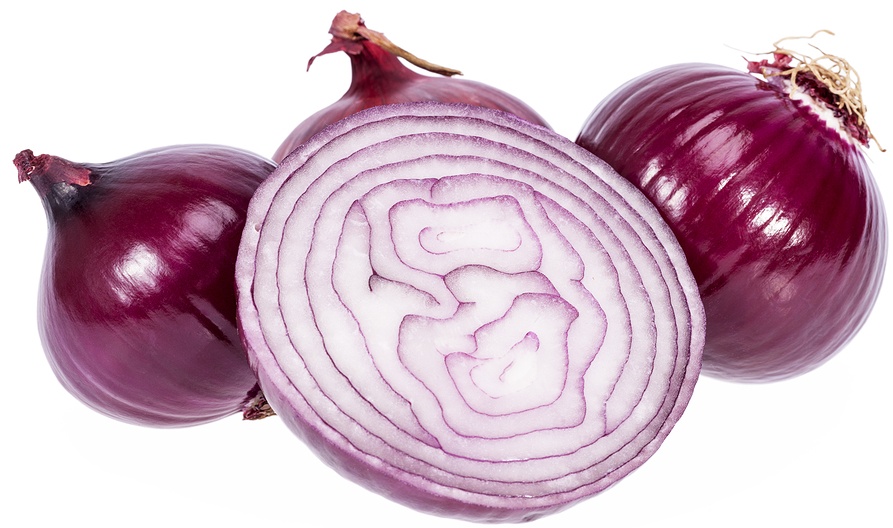Know Your Remedies: Allium cepa (All-c.)
 Common Names: Onion; red onion. General Information Allium Cepa (All-c.) is a key remedy for either infectious or allergic coryza (catarrhal inflammation of the mucous membranes of the nose). The person may be sleepy, find it difficult to concentrate, or feel foggy with the coryza. Symptoms are worse in the evening and in warm rooms, and are improved by open air. All-c also relieves phantom pains following amputation, especially when they feel thread-like or neuralgic. Those needing Allium cepa may especially like onions, something of interest with All-c being the potentised version of onion.
Common Names: Onion; red onion. General Information Allium Cepa (All-c.) is a key remedy for either infectious or allergic coryza (catarrhal inflammation of the mucous membranes of the nose). The person may be sleepy, find it difficult to concentrate, or feel foggy with the coryza. Symptoms are worse in the evening and in warm rooms, and are improved by open air. All-c also relieves phantom pains following amputation, especially when they feel thread-like or neuralgic. Those needing Allium cepa may especially like onions, something of interest with All-c being the potentised version of onion.
Allergies
- Hay fever.
- Watery discharge from nose and eyes.
- Acrid, burning, excoriating discharge from nose but bland, watery discharge from eyes.
- Symptoms worse in evening and warm rooms; better for open air.
- Sleepiness and difficult concentration with allergies.
Colds
- Colds that move downwards to the larynx or chest. (Note: Inappropriate or overuse of Allium cepa can cause head colds to go to the chest. (If there has been no improvement in symptoms, do not use this remedy beyond 4 doses.)
- Sensation of rawness in nose.
Mental-Emotional Symptoms
- Dull thinking and sleepiness.
- Difficult concentration.
Eye Problems
- Bland, watery discharge from eyes during cold or hay fever.
Throat Problems
- Pain in larynx on coughing.
- Grasps throat on coughing.
Heel and Limb Problems
- Friction Injuries to heels from rubbing shoes.
- Blisters on heels.
- Phantom pains or neuralgia in amputation stumps.
Headaches
- Worse in warm rooms and better in open air.
- Worse when eyes closed.
For Pets
- Hay fever symptoms.
- Repeated sneezing.
- Cat flu with streaming eyes and nose.
Where do I find it?
Allium Cepa (All-c.) is available from our online store as a single remedy, and as part of the following Complexes (combination remedies): Common Cold – Watery; Hayfever.
Home Treatment Guidelines
Acute, Self-Limiting Conditions
Conditions like colds or minor injuries, which are short-term and typically improve on their own, can be managed at home with homeopathy. However, in emergencies or if symptoms worsen, contact your healthcare provider.
Chronic Conditions
These home treatment instructions do not apply for ongoing issues, whether mentioned above or not, like persistent allergies or chronic pain. You should consult a qualified homeopath for a personalized treatment plan to achieve the best results with homeopathy for chronic conditions.
How to Take the Remedy for Acute Conditions
- Take one pill or five drops of the remedy. The frequency depends on symptom severity. As examples:
- For life-threatening symptoms, take every 1 minute and seek emergency help immediately.
- For mild symptoms, take every 4 hours.
- Stop taking the remedy once you feel better. Resume if symptoms return.
- If no improvement after four doses, choose a different remedy or consult a professional homeopath.
- For more details on dosing, refer to: How Often to Dose with a 30C Homeopathic remedy.
- For information on the different potencies, read: Guidelines on which potency to use
Additional Notes From Past Masters
Homeopathy is a 200-year-old system of medicine. Early homeopaths recorded detailed notes on how remedies worked, including initial tests, remedy relationships, and their experiences. These writings were shared to improve homeopathic practice and now offer fascinating insights into past uses of homeopathy. Here’s an example, edited and modernised for clarity, from Leaders In Homoeopathic Therapeutics (1898) by E. B. NASH M.D.:
Leaders In Homoeopathic Therapeutics by E. B. NASH M.D.
Allium Cepa (All-c.)
Coryza with frequent sneezing and profuse acrid discharge, corroding upper lip and nose.
Lachrymation also profuse but bland. (Euph. reverse).
Cold extends to the bronchi, with profuse secretion of mucus; coughing and much rattling (Chelidon).
Modalities < in the evening, and in warm room, > in open air (the coryza).
* * * * *
Anyone who has cut up raw onions knows what their effect upon the eyes and nose is -irritation, which causes violent sneezing and lachrymation. Then, if the homeopathic law of cure is true, it ought to be a good remedy for coryza, and so it is; but like every other remedy, it cures its own peculiar and characteristic form of the disease.
It has constant and frequent sneezing, with profuse acrid discharge, which burns and corrodes the nose and upper lip, and it is worse in the evening and indoors and better in open air.
It has also profuse lachrymation, with burning, biting and smarting of the eyes, but the discharge is bland; that is, it does not make the eyes sore afterwards.
There may or may not be headache; if there is it is, like the coryza, worse in warm room or evening and better in open air.
I have found it particularly useful in children when the profuse coryza or cold extended downward to the bronchi, with a like profuse secretion in the bronchial tubes, with much coughing and rattling of mucus.
Before Cepa came into homeopathic use we used to give Euphrasia when there was profuse coryza and lachrymation.
The difference between the two remedies is, that with Cepa the nasal discharge is acrid and the lachrymal bland, while exactly the reverse is true of Euphrasia.
The action of the remedy seems to be primarily in the nose with the one and in the eyes with the other, and thus we must learn to differentiate between all remedies.







